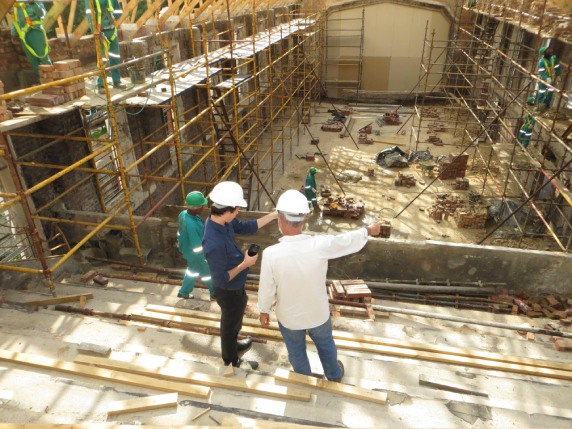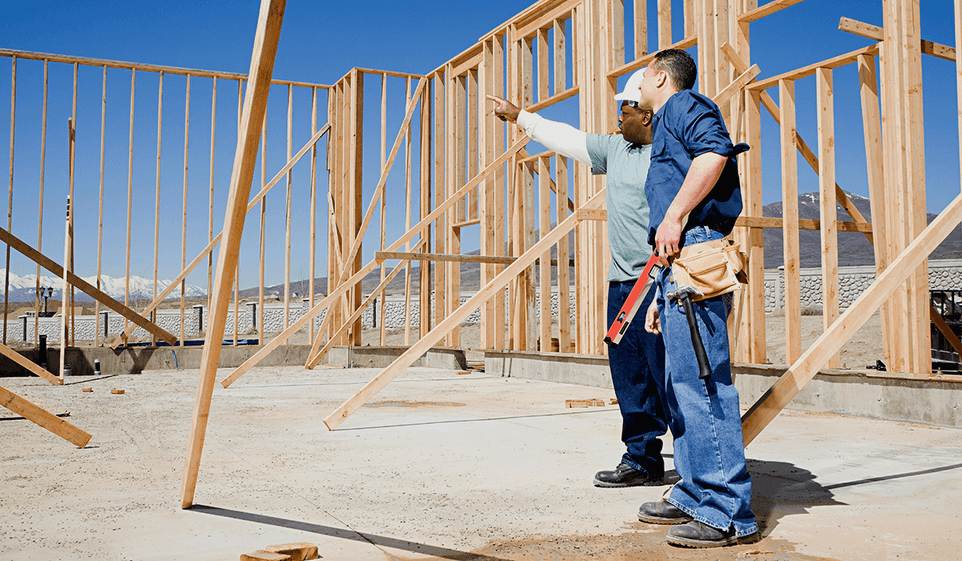Home building works are more like turning your passion into a profession. The first question that arises in our mind ‘is homebuilding a good career path or not. Many of these professions entail hands-on work, offering a tangible sense of accomplishment. Even roles not directly involved in physical construction culminate in a tangible finished product.
Homebuilding encompasses both the envisioning and blueprinting phases, as well as the hands-on construction. Different professions tend to focus on one facet or the other, dictating the niche within the fabrication process one might choose to pursue.
Best High-Paying Jobs In Homebuilding

Here lies a compilation of the finest paid positions in home building, each necessitating a higher level of education, experience, or a blend of both.
While advanced education often leads to augmented compensation, some roles in this field offer substantial rewards without the prerequisite of a college degree. After knowing about all the high-paying jobs nature and the strategies you will get a better concept for questions like Is homebuilding a good career path?
Best High-Paying Jobs In The Homebuilding Industry
Before entering into the homebuilding industry questions like whether ‘is homebuilding a good career path or not come very obvious into the mind.
1. Architect

Average Annual Salary: $90,000
The architect, a maestro of design, melds expertise in building aesthetics, materials, and cost considerations, all within budgetary confines. Proficiency in technical aspects and modern drafting software is imperative.
2. Architectural Engineer

Average Annual Salary: $96,000
These engineers, more implementers than designers, ensure that designs are both feasible and realistic, given current materials. Their role extends to verifying compliance with safety standards, often working closely with architects.
3. Construction Engineer

Average Annual Salary: $74,000
Tasked with orchestrating project implementation, construction engineers serve as coordinators, ensuring adherence to blueprints and schedules. Depending on the specifics, they might oversee budgets and supervise progress.
4. Project Manager

Average Annual Salary: $96,000
Suited for adept multitaskers and overseers, project managers are ubiquitous across industries, including home building. They steer projects from conception to fruition, ensuring alignment with client or company objectives, financial constraints, and seamless integration of various project facets.
5. Construction Supervisor

Average Annual Salary: $87,000
These supervisors meticulously oversee construction projects, enforcing safety protocols, and monitoring worker performance and equipment operation. They liaise with subcontractors and vendors while tracking progress and generating comprehensive reports.
6. Plans Examiner

Average Annual Salary: $60,000
Before construction commencement, projects must garner requisite approvals for compliance with local regulations and safety standards. Plans examiners meticulously review submissions to ensure regulatory adherence.
7. Real Estate Developer
Average Annual Salary: $78,000
These professionals procure land and conceive project blueprints, necessitating collaborative efforts with architects, construction leads, real estate agents, and local authorities. The scope of their workload necessitates a team approach.
8. Space Planner
Average Annual Salary: $68,000
Effectively optimizing space utilization is an art and a science. Space planners specialize in this practice, knowledgeable in spatial requirements under various circumstances. They play a pivotal role in both building design and system allocation. Are you a creative person? Then questions like whether is homebuilding a good career path always have a positive impact. The job of a space planner requires a very innovative thinking process.
9. Construction Foreman
Average Annual Salary: $65,000
Primarily managerial, construction foreman ensure work quality and efficient resource allocation. This role demands substantial construction experience as a prerequisite.
10. Construction Inspector
Average Annual Salary: $50,000
Construction inspectors uphold code adherence on-site, possessing the authority to issue citations and stop-work orders when compliance falters. Their duties encompass meticulous measurements and system assessments, encompassing plumbing, electrical, and HVAC while ensuring property boundaries and utility compliance.
Homebuilding Industry Entry-Level Positions:
Almost all the aforementioned roles necessitate field experience or, at the very least, a bachelor’s degree in the relevant field. Is homebuilding a good career path for any freshers? After seeing the entry-level jobs available in the home building industry, I hope you will get complete ideas about the available options for the freshers.
Yet, once the prerequisites are met, these positions offer substantial remuneration.
For those seeking to enter the industry and garner initial experience, the following list of entry-level positions may be more aligned with your aspirations:
1. Architectural Drafter

Average Annual Salary: $49,000
This role primarily entails the creation of technical drawings, and collaborating with architects or engineers to flesh out project blueprints.
2. Carpenter

Average Annual Salary: $40,000
Carpenters are adept at crafting structures from wood, spanning from shelves to building frameworks. Apprenticeship or vocational training equips them with the requisite skills.
3. Electrician

Average Annual Salary: $53,000
Electricians specialize in the installation, maintenance, and repair of electrical systems within buildings, often working in concealed spaces.
4. HVAC Installer

Average Annual Salary: $47,000
This role encompasses not only installation but also the repair and replacement of HVAC systems, demanding expertise in blueprint interpretation and manual dexterity.
5. Plumber

Average Annual Salary: $54,000
Plumbing, a critical building system, demands meticulous training and licensing. Plumbers are entrusted with ensuring proper water flow and drainage.
6. Mason
Average Annual Salary: $43,000
Masons specializes in working with various construction materials, such as stone, brick, concrete, and marble. This physically demanding role necessitates mastery of tools and materials.
7. Drywall Hanger
Average Annual Salary: $30,000
Drywall installation is a fundamental aspect of construction, requiring precise cutting, fitting, and affixing. This role demands precision and training. For any job enthusiast who likes to explore different fields the question is homebuilding a good career path or not unnecessary for them? They can explore any field which they are passionate about.
8. Painter
Average Annual Salary: $34,000
Once walls are erected, painters step in, wielding expertise in paints and application techniques. It’s a physically demanding role that calls for agility and dexterity.
9. Excavator Operator
Average Annual Salary: $41,000
Operating heavy machinery, like excavators, demands specialized training and licensing. Excavator operators maneuver these substantial machines to sculpt the terrain.
10. Roofer
Average Annual Salary: $35,000
Roofers are tasked with the critical job of installing roofing materials, ranging from shingles to copper, slate, or terracotta. This role demands an affinity for heights and mastery of different roofing materials.
Many of these trades provide a platform to accrue valuable experience, potentially leading to progression within the industry. Furthermore, expertise in your chosen field often correlates with enhanced compensation and expanded professional networks.
So, whether you opt to remain steadfast in your chosen trade or leverage your experience to venture into other realms, initiating your journey here is a commendable entry point.
Why Choose A Career In Home Building?
The realm of home building presents a complex landscape with a multitude of potential career trajectories. Despite the diversity of roles, certain characteristics are shared across most positions. If you’re contemplating a career in home building, consider the following traits:
Craftsmanship: Whether directly involved in construction or not, witnessing the culmination of your efforts in a standing structure can be profoundly satisfying.
Attention to Detail: From drafting blueprints to selecting materials and precise construction, an eye for detail is paramount.
Collaboration: Building a home is a monumental endeavor, necessitating collaboration among various experts. Being an effective team player is indispensable.
Outdoor Inclination: Many roles in home building entail outdoor work, necessitating a willingness to spend substantial portions of the day in the open air.
Should these qualities resonate with you, then a career in home building is a path well worth considering.
Education And Certification Prerequisites For A Career In Home Building
While some roles in home building do not mandate a formal diploma, pursuing relevant education can be advantageous. Here are some recommended courses of study:
| Subject Name | Required Skill Set |
|---|---|
| Architecture Knowledge | Ideal for aspiring architects, this program equips you with comprehensive knowledge of building design. |
| Architectural Engineering | Aids those interested in the practical implementation of designs, ensuring they align with existing materials and safety standards. |
| Interior Architecture | Focused on interior spaces, this field is pertinent to interior designers and space planners, but also beneficial in various finishing aspects of construction. |
| Construction Engineering | Tailored for those intrigued by the mechanics of construction, this program imparts a deep understanding of the building process. |
| Construction Management | Designed for individuals aiming to transition into management roles within construction projects. While prior construction experience is beneficial, it is not obligatory. |
For skilled trades like carpentry, electrical work, plumbing, masonry, and roofing, licensure is imperative. These professions are typically bonded, necessitating specialized insurance coverage.
For those operating heavy machinery, specialized training and licensing corresponding to the specific equipment are required.
Roles And Responsibilities In Home Building
Individuals engaged in home building are instrumental in the creation of residences. It’s a realm that blends scientific precision with artistic finesse. After knowing the job roles and the responsibilities you will get complete ideas about Is homebuilding a good career path or not. Hence your responsibilities must be suitable for you.
Roles vary widely based on hierarchical position and the phase of the construction process. Some might be involved in hands-on building activities, such as carpentry, drywall installation, or HVAC system implementation.
Others assume management positions, overseeing project progression, coordinating diverse teams, and ensuring resource availability.
On the planning and design end, architects conceive blueprints, which are subsequently scrutinized for safety, accuracy, and compliance before execution.
Bottomline

The demand for homes persists regardless of economic fluctuations, ensuring a steady stream of opportunities. Moreover, the versatility of roles within this domain provides a buffer, allowing for transitions when circumstances necessitate. Guess you already get the answer of whether is homebuilding a good career path or not. What is your experience? Comment back to us and let us know about your opinion.
Read Also:
- Jill Biden Tests Positive For Covid While Joe Biden Tests Negative
- ‘Rich Is Evil’: Elon Musk Blames LA School For “Brainwashing Communist Daughter”
- More Than 70,000 Burning Man Festival Attendees Remain Stuck In Nevada Desert After Rain

